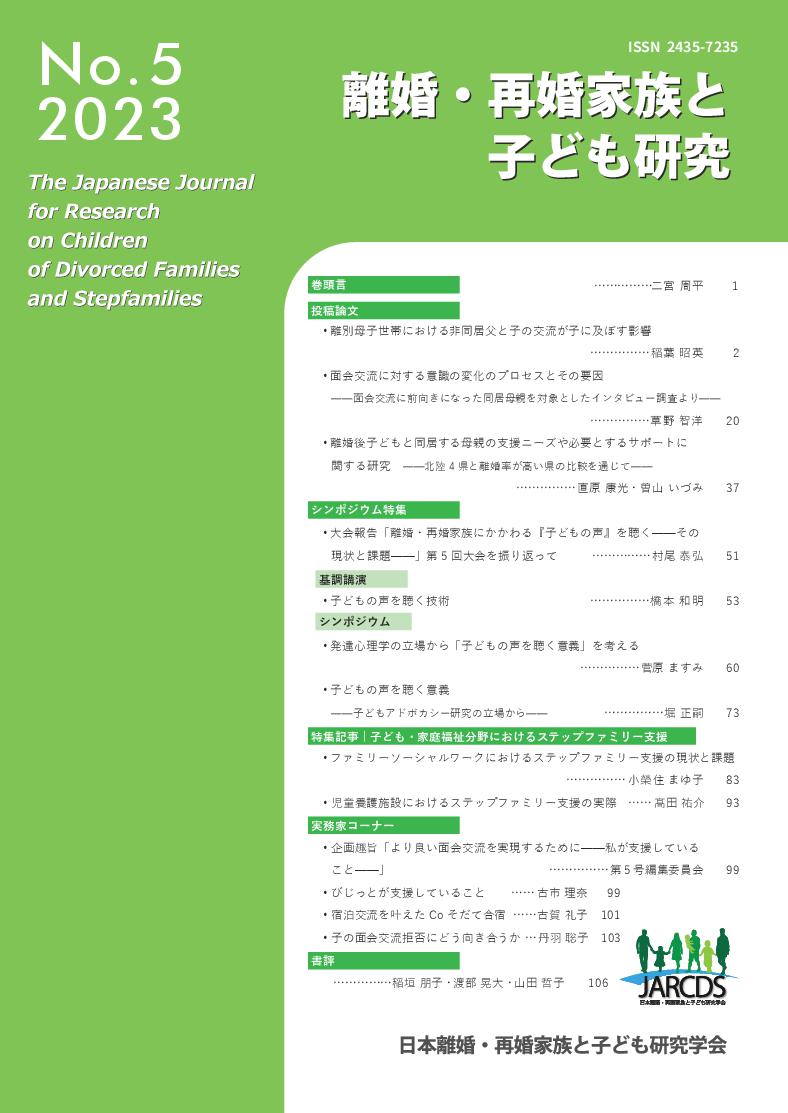Current issue
Displaying 1-14 of 14 articles from this issue
- |<
- <
- 1
- >
- >|
Preface
-
2023 Volume 5 Pages 1
Published: 2023
Released on J-STAGE: September 01, 2023
Download PDF (113K)
Articles
-
2023 Volume 5 Pages 2-19
Published: 2023
Released on J-STAGE: September 01, 2023
Download PDF (1086K) -
2023 Volume 5 Pages 20-36
Published: 2023
Released on J-STAGE: September 01, 2023
Download PDF (905K) -
2023 Volume 5 Pages 37-50
Published: 2023
Released on J-STAGE: September 01, 2023
Download PDF (1209K)
Special Feature: Symposium
-
2023 Volume 5 Pages 51-52
Published: 2023
Released on J-STAGE: September 01, 2023
Download PDF (173K)
Keynote Speech
-
2023 Volume 5 Pages 53-59
Published: 2023
Released on J-STAGE: September 01, 2023
Download PDF (298K)
Symposium
-
2023 Volume 5 Pages 60-72
Published: 2023
Released on J-STAGE: September 01, 2023
Download PDF (739K) -
2023 Volume 5 Pages 73-82
Published: 2023
Released on J-STAGE: September 01, 2023
Download PDF (506K)
Special Feature: Stepfamily and Family Social Work
-
2023 Volume 5 Pages 83-92
Published: 2023
Released on J-STAGE: September 01, 2023
Download PDF (516K) -
2023 Volume 5 Pages 93-98
Published: 2023
Released on J-STAGE: September 01, 2023
Download PDF (262K)
Practitioners' Corner
-
2023 Volume 5 Pages 99-105
Published: 2023
Released on J-STAGE: September 01, 2023
Download PDF (292K)
Book Reviews
-
2023 Volume 5 Pages 106-108
Published: 2023
Released on J-STAGE: September 01, 2023
Download PDF (222K) -
2023 Volume 5 Pages 109-111
Published: 2023
Released on J-STAGE: September 01, 2023
Download PDF (240K)
-
2023 Volume 5 Pages 112
Published: 2023
Released on J-STAGE: September 01, 2023
Download PDF (154K)
- |<
- <
- 1
- >
- >|
